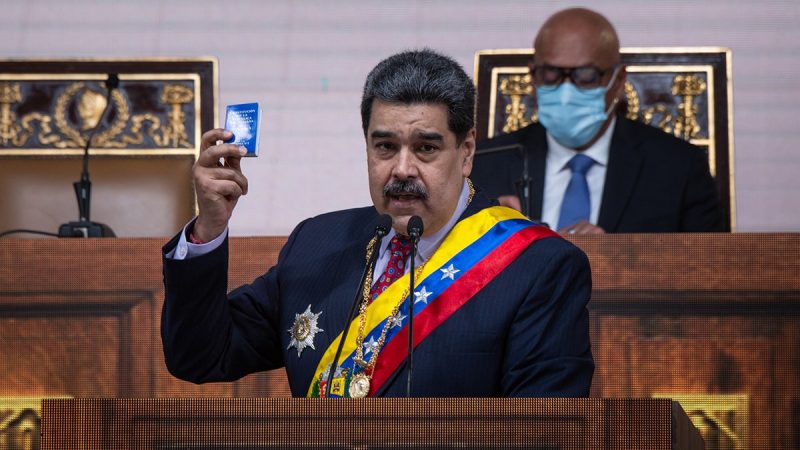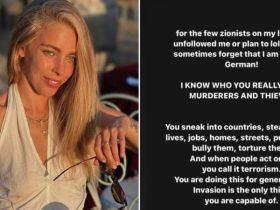Former Colombia President Ivan Duque recently sat down with Fox News Digital to discuss Latin American foreign policy, economics, the rise of Russian and Chinese influence in the region and his work on environmental initiatives.
Duque, an attorney who represented Colombia at the Inter-American Development Bank before serving four years as a senator, won the 2018 presidential election, defeating current President Gustavo Petro and serving until 2022.
Duque has long been a strong voice condemning the rise of authoritarian and socialist regimes across the region, often linked to China and Russia. As Chinese economic and geopolitical influence has skyrocketed throughout Latin America, Duque has expressed concern that the U.S. is often standing by on the sidelines.
‘One of the concerns that I have is that when people raise the issue of why Chinese companies are winning bids on so many critical and strategical infrastructure projects in Latin America… there is not a big amount of U.S. companies that are willing to bid on these projects… and I think that’s something that has to be changed,’ he said.
China has made no secret of its interest in developing its economic and strategic interests in the Western Hemisphere.
‘We should have more American companies interested in developing strategic infrastructure in Latin America,’ said Duque.
Pivoting to Russia, Duque differentiates between the largely economic and geopolitical strategy of Beijing and the more nefarious machinations of Moscow.
‘I really want to distinguish between China and Russia, because it’s clear that Russia, in the case of Latin America, has been not only supporting dictatorial regimes and oppressive regimes… like Venezuela or Nicaragua or Cuba, but has been participating actively in espionage,’ he explained.
Tuque continued, ‘I had to basically, as president, expel two Russian agents that were doing espionage in Colombia, as has happened in other European countries. And there’s no doubt that in terms of cybersecurity, there’s a big risk that Russia will be supporting cyberattacks driven from Latin American countries. And I think those are serious hemispheric security concerns that have to be raised and that require a strong voice saying to Russia, ‘We’re not your playground. Don’t you dare come and try to influence our electoral democratic systems and don’t you dare try to breach our data security.”
Duque has long been a leading voice speaking out against the Venezuelan dictatorship of Nicolas Maduro, who has been charged with drug trafficking by the U.S. in the Southern District of New York. Yet Duque believes Maduro has been successful in exploiting the current situation to maintain his iron grip on power.
‘I think the tragedy of Venezuela is evident. More than six million people have left the country. The economy has been absolutely destroyed… and the migration is going to continue. And sadly, I believe many people look at Maduro as a hot potato that nobody wants to handle. So that’s sad, because he’s going to use that sentiment of being a hot potato to keep himself in office. And try to keep on brutalizing the opposition and consolidating his power,’ he said.
‘I think the international organizations, the international community, needs to put more pressure on the regime and obviously needs to put more pressure to guarantee imminent, rapid, trustworthy — with international scrutiny — democratic elections.’
The Andean region has lately been beset by skyrocketing political instability and violence. Looking south to Colombia’s neighbor Ecuador, Duque lauds the efforts of President Guillermo Lasso to forcefully confront drug trafficking and criminality.
‘In the case of Ecuador, what’s interesting is that President Lasso, who has been a brave president, has had to struggle with the rising levels of violence,’ he said. ‘But that has happened because instead of doing what others did in the past, which was to remain silent and try to have under-the-table agreements with the armed groups and cartels… he decided to confront them, to dismantle them, to put pressure on them, and obviously the way they want to get revenge is by trying to create instability and a sentiment of national insecurity.’
Duque continued: ‘So what model do I prefer?… I think the cartels and the criminal organizations have to be fought with the rule of law and law and order… I think it’s much better to confront the criminal organizations and try to mobilize the whole society to fight them than remaining silent by just allowing them to keep on capturing the country in a subtle way.’
Looking at Argentina, Duque believes it’s possible that this month’s upcoming electoral contest will see firebrand economist Javier Milei and center-right Patricia Bullrich move on to the second round, with Peronist candidate Sergio Massa finishing third.
‘It’s clear that people are fed up, with high levels of inflation, and people are fed up with the deterioration in the value of their assets, and people are fed up with promises that were never accomplished, and people just want to see a change… which Milei and Patricia Bullrich both represent,’ he said.
‘As polls might reveal today… in a second round, maybe the two front-runners are going to be Milei and Patricia Bullrich. Now why is that? Because, you know, people don’t believe that the Peronist party, or [Cristina] Kirchner, have been able to deliver what they promised.’
Duque said Argentina needs ‘growth to generate employment, to generate stability and to create trust again in the markets and obviously in those considerations, who’s going to be able to have governability is going to be essential, because what you’re going to do… you require a coalition. And I think people will have to evaluate whether it’s Milei or Patricia Bullrich — the one that can really bring people together and Congress to achieve.’
Finally, Duque expressed concerns over the direction that Colombia is headed under the direction of his successor, the leftist Petro.
‘When I have had to speak about policy, I’ve done it always in a constructive way… when I have seen that is important to raise red flags, I’ve also done so. But I think there’s a big worry on multiple fronts,’ he said.
‘I think there’s a clear deterioration in the security of the country in recent days, the National Association of Enterprises and companies sending… a very troubling letter to the president about the increase of robberies and piracy on the roads of Colombia. Of the fight against narcotics… most of the eradication has been stopped, and also there is non-commitment from the government to have precision aerial spraying, and also most of the operations against narcotrafficking have reached record lows.’
He added, ‘So all that has now impacted in having more illegal crops and obviously more coca is less peace in the case of Colombia.’
‘We have seen high levels of inflation… a lack of foreign direct investment… we might have investments in portfolio, but real capital formation investment has started to reach record lows and also our exports have been dropping down. So all this is going to lead that maybe this year the economy is barely going to grow above 1%, if it does extremely well,’ the former Colombian leader said.
‘Otherwise, it’s going to be maybe grow 0.5% or something like that. And that’s worrying, especially since we grew 10.7% in 2021 and 8.5% in 2022. So all these things generate a lot of concern.’
Since leaving office, Duque has been involved in a variety of environmental initiatives, including joining the Bezos Earth Fund, working as a member of the McKinsey Sustainability Advisory Council and spearheading the Concordia Amazon Initiative, which seeks to protect the South American rainforest.
Duque has devoted much of his career to environmental issues, and now that he has returned to the private sector, he has sought out further opportunities for leadership roles in academia and public policy.
‘During my presidency, I worked hard to increase protected areas in the whole country from 13% to 30% of maritime and land territories… I also was a promoter of the energy transition, increasing our share of renewables from 0.2%, to reach almost 15% by the end of next year,’ he said.
Deforestation is also an issue in which Duque has emerged as a global leader.
‘The Amazon has lost, in the last four decades, an area the equivalent to the size of France and Germany due to deforestation,’ he explained, and without a change, ‘it is going to be more difficult, and maybe impossible, for the world to reach our global NDCs (Nationally Determined Contributions) by 2030, and to reach carbon neutrality by 2050.’
Duque believes that free markets hold the key to solving the planet’s pressing environmental issues, advocating ‘market-driven nature-based solutions.’


